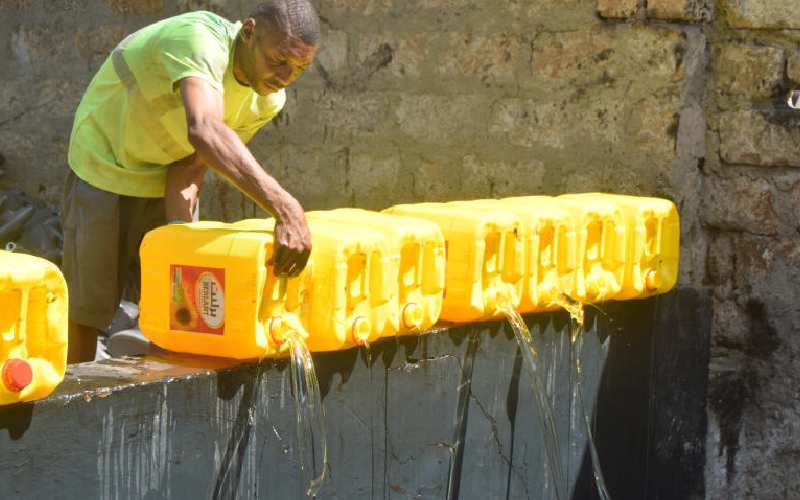×
The Standard e-Paper
Home To Bold Columnists

Hired workers destroy part of the 800 jerricans of 20 litres each which Kenya Bureau of Standards (KEBS) said the edible vegetable cooking oil was unfit for human consumption. [Gideon Maundu, Standard]
Hardly a month passes without the Kenya Bureau of Standards (Kebs) announcing that it has netted goods that are unfit for the purpose for which they were made.